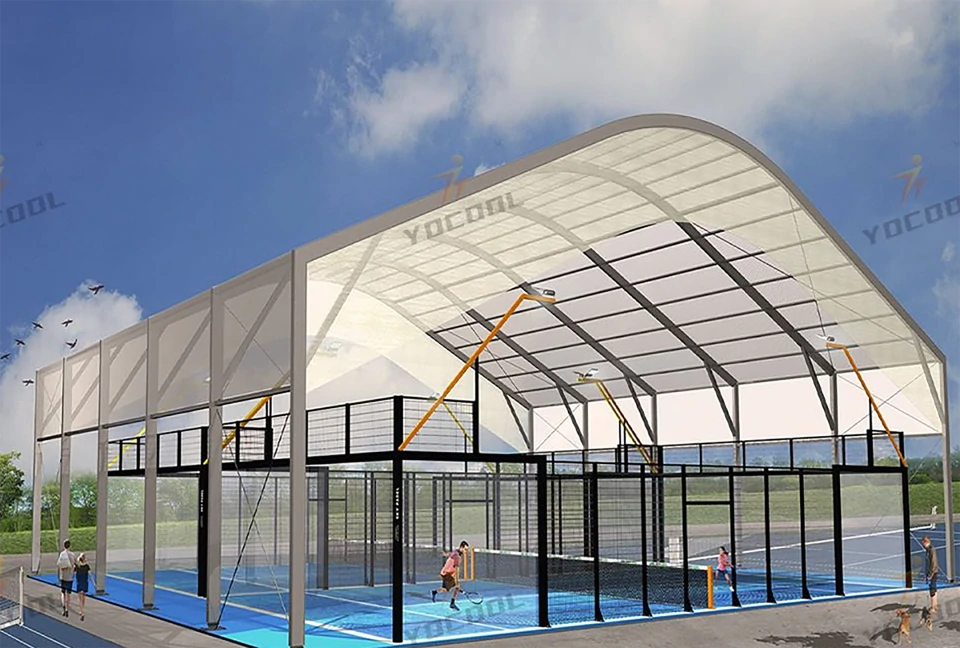

The Rise of Tennis and Padel A Comparative Exploration
In recent years, both tennis and padel have surged in popularity around the world, capturing the hearts of sports enthusiasts of all ages. While both sports share a common lineage, they possess distinct characteristics that cater to different playing styles and preferences. In this article, we will delve into the unique aspects of tennis and padel, examining their histories, gameplay mechanics, and the reasons behind their growing popularity.
The Evolution of Tennis and Padel
Tennis has a rich history that dates back to the late 12th century in France, originally played as a handball game known as jeu de paume. Over the years, it evolved into the racket sport we know today, characterized by its iconic grass, clay, and hard courts. The modern game of tennis was standardized in the late 19th century, leading to the establishment of prestigious tournaments like Wimbledon and the US Open.
Padel, on the other hand, is a relatively new sport that emerged in the 1960s in Mexico. Its creator, Enrique Corcuera, designed the game for a smaller court that is surrounded by walls, allowing players to use the walls in a manner similar to squash. Padel gained significant traction in Spain and Latin America, and it is now the fastest-growing sport in Europe and beyond. Its simplicity and fast-paced nature attract players of various skill levels.
Gameplay Mechanics
The gameplay of tennis and padel varies significantly, which influences the way they are played and enjoyed by athletes and spectators alike.

In tennis, matches can be played in singles or doubles formats, and players use a solid racket to hit a felt-covered rubber ball over a net. Points are scored in a more traditional way, with the objective being to land the ball in the opponent's court. The physical demands of tennis are notable; players often engage in long rallies that require endurance, agility, and strategic positioning on larger courts.
Padel, however, is typically played in doubles format on a smaller, enclosed court, about one-third the size of a tennis court. The use of walls and more forgiving ball bounce allows for a different style of play, often resulting in quicker points and dynamic exchanges. The game is known for its social aspect, as players frequently engage in lively banter and camaraderie. Padel also has a less steep learning curve, making it accessible to beginners while still providing challenges for seasoned players.
The Popularity Boom
The surge in popularity of both sports can be attributed to various factors. Tennis has a well-established presence globally, with famous players like Roger Federer, Serena Williams, and Rafael Nadal capturing the public's imagination and inspiring the next generation. The sport's media coverage and access to local clubs have made it appealing to a wide audience.
Padel's rise can be linked to its social nature and the ease with which newcomers can pick up the game. Many clubs are offering padel courts, and its inclusion in fitness centers and recreational facilities makes it an attractive option for those looking to engage in a fun and exciting sport. Its fast-paced, engaging format keeps players coming back for more.
Conclusion
In conclusion, both tennis and padel offer unique experiences for players and fans alike. While tennis boasts a rich history and a robust international framework, padel is carving its niche by providing an inclusive and engaging environment for players of all backgrounds. As both sports continue to grow, they not only foster healthy competition but also create communities centered around shared passion and enjoyment of the game. Whether you are a seasoned pro or a curious beginner, the world of tennis and padel offers something for everyone.
Premium Paddle Tennis Rackets for Every Court & Player
Premium Padel Courts: Expert Design & Installation Services
Premium Padel Courts: Panoramic Designs & Custom Builds
Premium Padel Court | Custom Designs & Quality Installation
Paddle Tennis Rackets: Unleash Power & Precision on Court
Best Paddle Tennis Rackets: Power, Control & Comfort